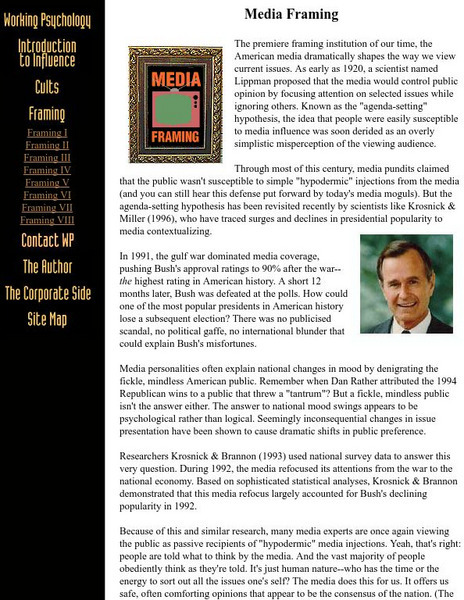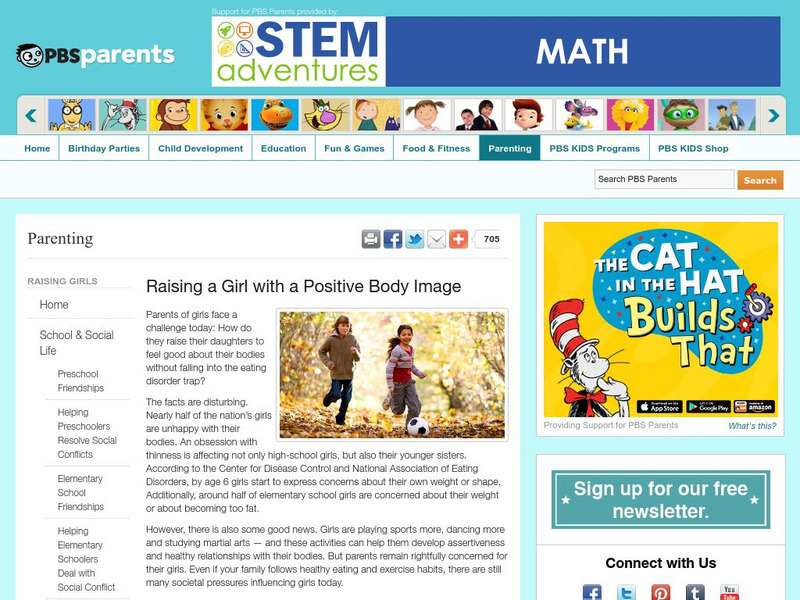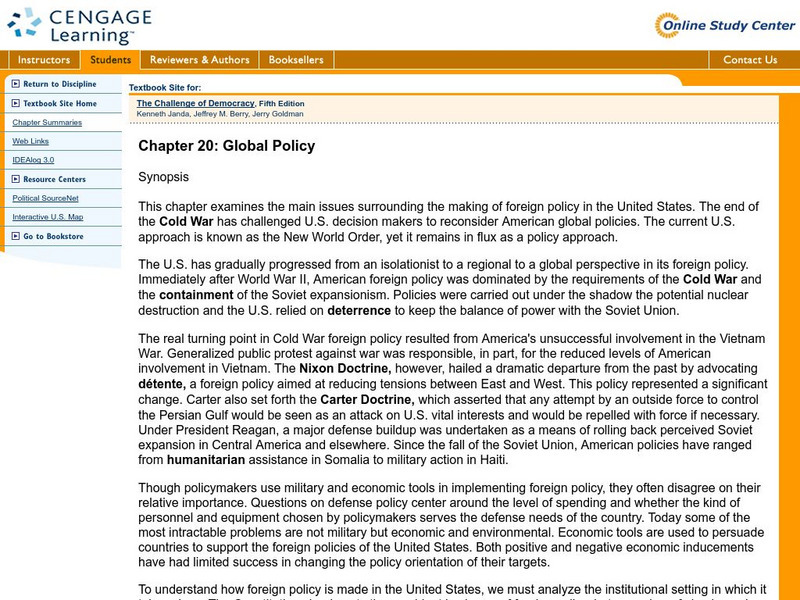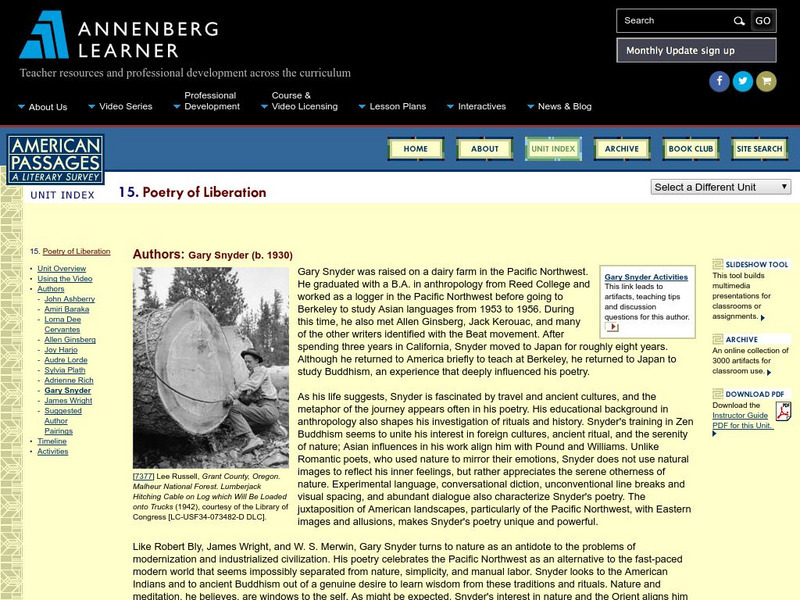Other
3 Original Ways to Get More People Sharing Your Content on Social Media
This article explains techniques to increase how much exposure your social media posts receive. The author discusses word of mouth, social media influencers, the use of contests, calls-to-action, and other strategies.
PBS
Pbs Learning Media: What Is Social Media's Role in Election 2016?
In this lesson, students examine the different ways candidates use social media, including Instagram, Facebook, and Twitter in their presidential campaigns. They will watch videos, read articles, and examine candidates' social media pages.
PBS
Pbs Learning Media: Greenland Mass Variation Since 2002
Scientists study ice sheets because they influence weather and climate, playing a role in atmospheric and ocean circulation. Ice sheets can also have huge impacts on global sea levels because they store so much water. Explore this...
PBS
Pbs Learning Media: What Happens When an Oil Spill Occurs?
This interactive activity from McDougal Littell/TERC visualizes the effects of the Exxon Valdez oil spill, factors that influence oil spill behavior and impact, and techniques used to contain and clean up oil spills at sea.
Other
Media Framing
Though only one part of a much larger site, this page specifically explains media "framing" or influence on the political and social processes in the United States.
PBS
Pbs: Raising a Girl With a Positive Body Image
Geared to parents and educators on how to raise a girl to have a positive body image and not be influenced by peers or media influences. This is an easy-to-read article which students would also find useful.
Media Smarts
Media Awareness Network: What's in a Word? Lesson Plan
Help 5th through 7th graders explore the power of words and their capacity to influence our thinking with this instructional activity from the Media Awareness Network. An easy-to-print .pdf version is linked from the top of the page.
PBS
Pbs Learning Media: Point of View: Who, Me? Biased?: Understanding Implicit Bias
In this interactive lesson, learners explore the extent to which society (and they themselves) may discriminate based on factors they're not even aware of, implicit biases. Why haven't laws been enough to eliminate discrimination? After...
PBS
Pbs Learning Media: Precipitation on the Planet
Precipitation affects many aspects of our lives, from drinking water and food to devastating rain or snow storms. NASA gathered information from satellites to study factors that influence precipitation. View these narrated and unnarrated...
PBS
Pbs Learning Media: Virtual Pendulum
This interactive activity from ZOOM offers a chance to experiment with a virtual pendulum and to see how it can be influenced by a variety of factors.
TeachEngineering
Teach Engineering: The Big Mo
Momentum is not only a physical principle; it is a psychological phenomenon. Students learn how the "Big Mo" of the bandwagon effect contributes to the development of fads and manias, and how modern technology and mass media accelerate...
PBS
Pbs Learning Media: Great Ocean Conveyor Belt: Part I
This image from GRID-Arendal depicts the major circulation pattern of the ocean, illustrating interactions between temperature, salinity, and depth. Includes a background reading handout and several discussion questions.
Cengage Learning
Houghton Mifflin: Chapter 20, Global Policy
This brief article overviews how American foreign policy perspectives have changed over time. Learn how the media has provoked some of the changes, how media coverage during the Vietnam War, for example, influenced society's perspectives...
CommonLit
Common Lit: "Anti Social Networks? We're Just as Cliquey Online" by Laura Sydell
A learning module that begins with "Anti-social Networks? We're Just as Cliquey Online" by Laura Sydell, accompanied by guided reading questions, assessment questions, and discussion questions. The text can be printed as a PDF or...
National Gallery of Art
National Gallery of Art: Text and Art
Students will examine the work of artist Barbara Kruger and consider how visual media, such as in print and advertising, can be constructed to influence viewers' perceptions and behaviors. Students will create their own works of art...
PBS
Pbs Teachers: Sports Screeners
Examine how physical activity and sports are depicted in movies and on television. Hypothesize how images of physical activity and sports depictions in entertainment can influence young people's attitudes and behaviors.
Annenberg Foundation
Annenberg Learner: Bridging World History: Food, Demographics, and Culture
This unit probes into the role food plays in society in terms of culture, economy and global awareness since the primary globalization in the 1500s through videos, various readings, and activities.
Annenberg Foundation
Annenberg Learner: American Passages: Poetry of Liberation: Gary Snyder
Gary Snyder is the focus of this biography, identifying his contributions to literature through poetry. Click on "Gary Snyder Activities" for related artifacts and activities.
PBS
Pbs Teachers: The Presidential Debates (Lesson Plan)
A lesson activity that has students investigating media coverage of presidential debates and discussing how viewers are influenced by things other than the issues being debated. Students will also explore techniques that can help viewers...
Energy4Me
Energy4me: Perforated Well Casing
How do you think adding holes to a well casing will influence the amount of petroleum or natural gas that a well can produce? This activity models the differences in production of a perforated and non-perforated well casing. After the...
Other popular searches
- Media Influence on Teens
- Media Influence in Politics
- Health Ed Media Influence
- Media Influence on Drugs
- Government Media Influence
- Media Influence Sun Safety
- Media Influence Products
- Media Influence Politic
- Media Influence on Teachers
- Media Influence Politica
- Media Influence on Beliefs
- Media Influence on Values







